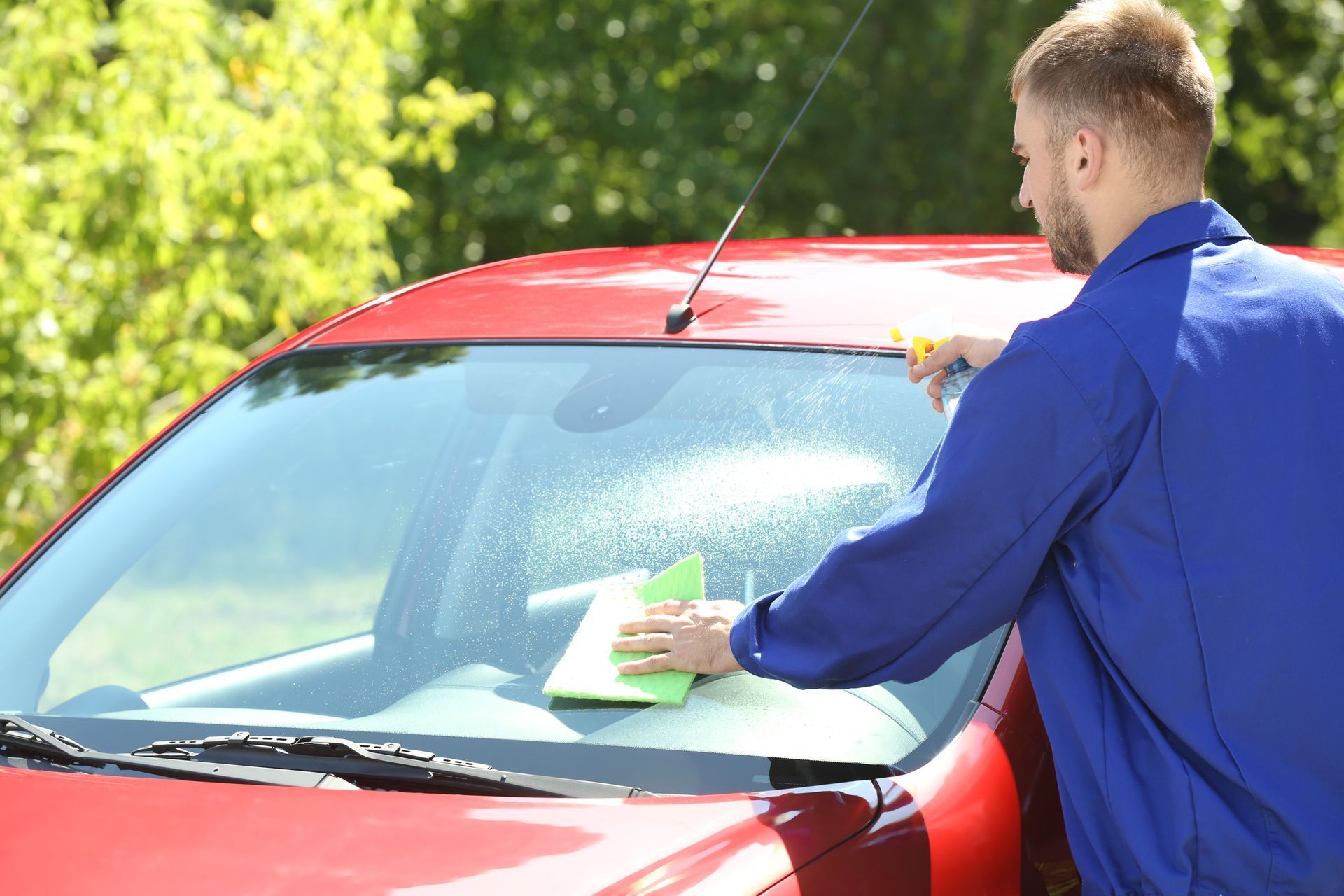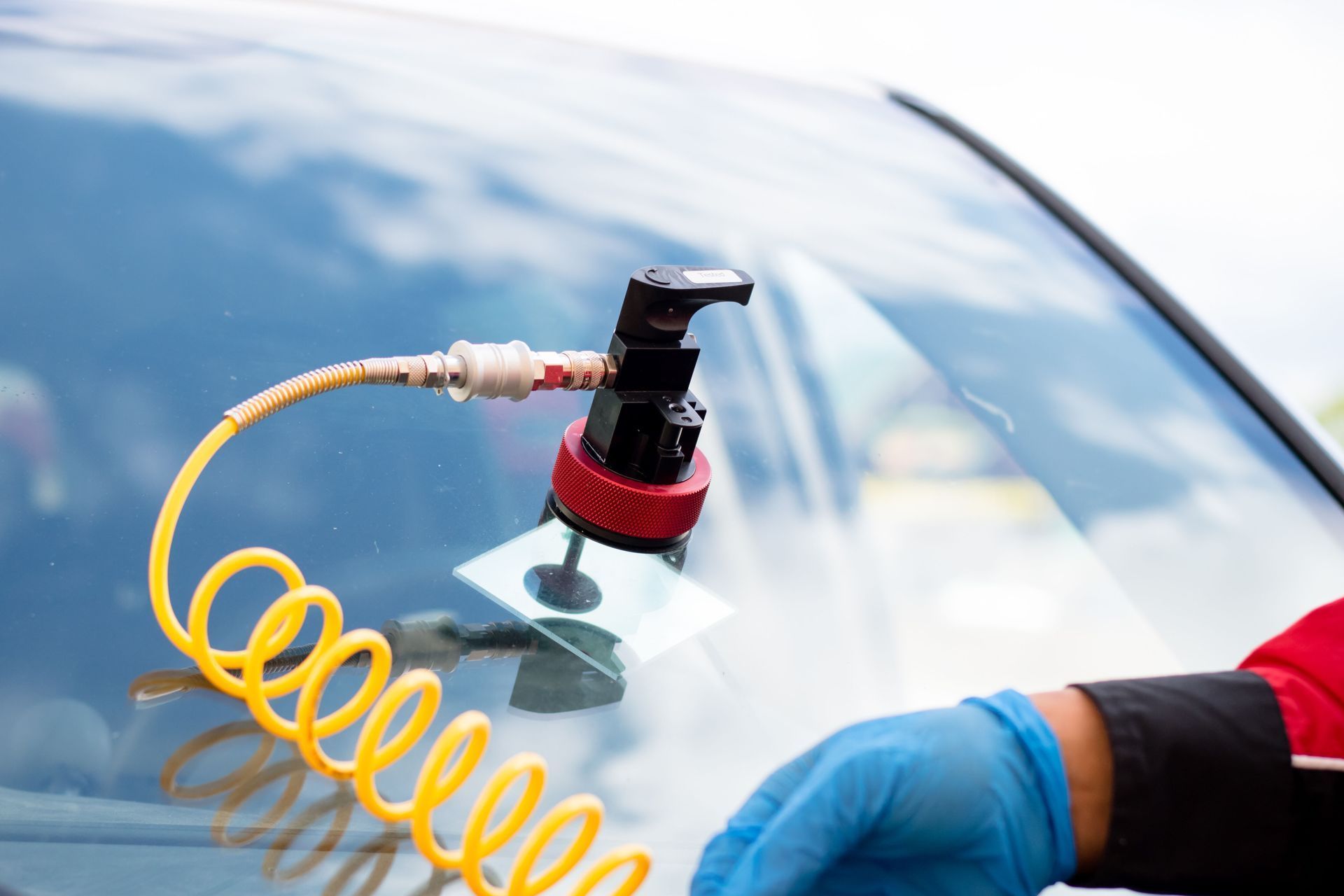Safest Ways to Clean Treated and Tinted Car Windows Without Causing Damage
September 24, 2025
September 24, 2025
Highlights:
- Learn why treated and tinted windows require special care to avoid scratches and fading.
- Discover the safest cleaning tools and solutions recommended by industry experts.
- Find out common mistakes to avoid when maintaining your tinted car windows.
- Get answers to frequently asked questions about cleaning techniques and products.
- See why drivers in Castle Rock, WA trust 877 Glas Guy for professional auto glass care.
Treated and tinted windows add style, privacy, and protection to vehicles, but they also require specific cleaning methods to avoid damage. Using the wrong products or tools can quickly scratch the surface or weaken the tint. Knowing the right way to maintain these surfaces ensures that your investment lasts as long as possible while keeping visibility clear. In Castle Rock, WA, car owners often ask experts like 877 Glas Guy how to clean their tinted glass properly. The key is to combine the right tools with gentle techniques and safe cleaning solutions.
Understanding Window Tint and Treatment
Before diving into cleaning methods, it's important to understand what makes tinted and treated windows different. Window tint involves applying a thin film to the glass that can block UV rays and reduce heat inside the vehicle. Treatments may include water-repellent coatings or scratch-resistant layers. These enhancements are effective but sensitive to harsh chemicals. According to Market.US News , high-quality ceramic window tints can last over 10 years with proper care, whereas standard tints generally last around 5 years. Knowing these basics helps prevent damage and maintain clarity.Safe Cleaning Tools for Tinted Windows
Choosing the right tools is just as important as selecting the right cleaning solution. Rough sponges, paper towels, or abrasive cloths can scratch treated or tinted surfaces. Microfiber cloths are the safest option because they are soft, lint-free, and effective at trapping dirt without causing scratches. Additionally, a squeegee can help remove excess water without streaking. Many auto glass professionals recommend using two cloths-one damp for cleaning and one dry for finishing. This simple approach ensures streak-free results while keeping the tint layer intact.FAQ Section 1
Choosing the Right Cleaning Solutions
The cleaning solution you use matters greatly in preserving tinted or treated glass. Ammonia-based cleaners should be avoided, as they can degrade the adhesive film, leading to peeling or bubbling, while ammonia-free, pH-balanced cleaners-such as a mild soap and distilled water mixture-are much safer and prevent mineral streaks. To protect the film's edges, always spray the cleaner onto the cloth rather than directly onto the glass. According to the International Window Film Association , using a "normal glass cleaning solution which contains no abrasive materials" and a soft cloth is recommended for cleaning windows with film.Proper Cleaning Technique
Technique is just as critical as tools and products. Start by wiping the window with a damp microfiber cloth in a circular motion to loosen dirt. Then, use vertical strokes followed by horizontal strokes to finish. This two-step method reduces streaking and improves visibility. It's also best to clean windows in shaded areas rather than direct sunlight, which can cause the solution to evaporate too quickly. According to experts, even gentle pressure matters-pressing too hard could risk peeling the tint at its edges.Avoiding Common Mistakes
Many car owners accidentally shorten the lifespan of their tinted windows by making simple mistakes. For example, scraping stickers with sharp objects can scratch the film permanently. Another common error is using abrasive pads or cleaners, which may strip away protective coatings. Even rolling windows down too soon after cleaning can cause damage, especially if moisture seeps into the edges of the film. By taking extra care and using the right process, you'll extend the life of your tinted or treated windows significantly.FAQ Section 2
Additional Protective Measures
Cleaning is only one part of maintaining tinted windows. Adding protective habits helps extend their lifespan. Parking in shaded areas reduces UV exposure, which can fade tint over time. Using sunshades inside the vehicle provides another layer of protection. Regular inspections by auto glass professionals can also catch early signs of wear or peeling. According to Popular Mechanics , maintaining windows properly can prevent costly repairs and replacements. These preventive measures, combined with safe cleaning, keep your glass looking pristine. Professional Cleaning and Maintenance
Sometimes professional cleaning is the safest option, especially if you're unsure about products or techniques. Auto glass experts like those at 877 Glas Guy in Castle Rock, WA, have the right tools and experience to clean tinted windows without causing damage. They also know how to handle special treatments, such as water-repellent or acoustic glass. Professional services can provide deep cleaning, polishing, and even reapplication of protective coatings, giving your windows longer life and better performance than DIY cleaning alone.Extending the Lifespan of Tinted Windows
With the right care, tinted windows can last many years without fading or peeling. Using the proper combination of microfiber cloths, ammonia-free cleaners, and gentle techniques ensures the tint film remains intact. Regular maintenance not only keeps your car looking sharp but also protects against UV damage and improves driving comfort. By avoiding shortcuts and relying on trusted advice, drivers can preserve the value of their vehicles. Investing time in proper cleaning is far less costly than replacing damaged tint prematurely.FAQ Section 3
Treated and tinted windows enhance both style and function, but only if they're properly cared for. By using microfiber cloths, ammonia-free solutions, and careful techniques, you can keep them looking like new. Avoiding common mistakes, protecting the glass from harsh conditions, and considering professional help when needed all play a role in preserving quality. In Castle Rock, WA, trusted professionals like 877 Glas Guy provide the guidance and services drivers need for
long-lasting auto glass
. Safe cleaning is more than maintenance-it's protection for your investment. Regular upkeep also helps extend the life of the tint, ensuring clarity and comfort on every drive.





